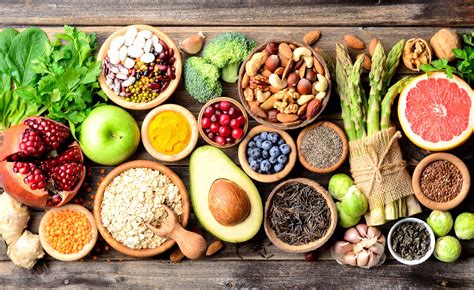Discover the benefits and key principles of the fruitarian diet, plus tips for transitioning and overcoming common challenges. Start your journey to a fruit-based lifestyle today.
Understanding the Fruitarian Diet
Contents
The Fruitarian Diet is a type of diet that primarily consists of fruits, along with some seeds and nuts. The key principle of this diet is to consume foods that are obtained without harming the plant. This means that only the fruits that can be obtained without damaging the plant in any way are included in this diet.
Proponents of the Fruitarian Diet believe that consuming fruits in their natural state is the most natural and healthy way to eat. They argue that fruits are packed with essential nutrients and are easily digestible, making them an ideal choice for humans.
One of the key concepts of the Fruitarian Diet is the idea of ethical eating. This involves consuming foods in a way that minimizes harm to the environment and other living beings. By only consuming foods that can be obtained without causing harm, fruitarians aim to live in harmony with nature.
Fruitarians also believe that this diet can have a positive impact on their health, claiming that it can lead to increased energy, improved digestion, and a stronger immune system. However, it is important to note that the Fruitarian Diet can be challenging to maintain, as it requires careful planning to ensure that all nutritional needs are met.
Benefits of a Fruitarian Diet
Benefits of a Fruitarian Diet
Switching to a Fruitarian Diet can have numerous benefits for your health and well-being. By consuming a diet consisting primarily or entirely of fruits, you can increase your intake of essential vitamins, minerals, and antioxidants. Fruits are also low in calories and high in fiber, making them an excellent choice for weight management and digestive health.
Additionally, the high water content in fruits can help keep you hydrated and support overall hydration levels in your body. The natural sugars in fruits provide a quick source of energy, making them a great option for pre- or post-workout snacks. By incorporating a variety of fruits into your diet, you can also enjoy a wide range of flavors and textures, making mealtime more enjoyable and satisfying.
Research has shown that a Fruitarian Diet may also have benefits for reducing the risk of chronic diseases such as heart disease, diabetes, and certain types of cancer. The abundance of phytochemicals and other bioactive compounds in fruits can help support the immune system and protect against oxidative stress and inflammation.
Furthermore, many fruits have been linked to improved skin health, cognitive function, and overall longevity. The natural abundance of vitamins A, C, and E in fruits can support healthy skin, eyes, and immune function. The high levels of antioxidants in fruits may also help protect against age-related cognitive decline and promote brain health.
Ultimately, a Fruitarian Diet offers a wide range of benefits for your physical and mental well-being. By choosing to incorporate more fruits into your daily eating habits, you can enjoy enhanced nutrition, improved health outcomes, and a greater sense of vitality and energy.
Key Principles of Fruitarianism
Fruitarianism is a dietary lifestyle that involves consuming only fruits, nuts, seeds, and other plant-based foods that can be harvested without harming the plant. This diet is based on the belief that fruits and other plant foods are the most sustainable and ethical sources of nutrition for humans. The key principles of fruitarianism revolve around the consumption of raw, ripe, and organic fruits and the avoidance of any animal products or by-products.
One of the key principles of fruitarianism is ethical and sustainable living. Fruitarian diet followers believe in living in harmony with nature and abstaining from the exploitation of animals and the environment. By consuming only plant-based foods that do not require the destruction of plants or harm to animals, fruitarians aim to minimize their impact on the planet and promote ethical and sustainable living.
Another principle of fruitarianism is raw and organic eating. Fruitarian diets mainly consist of raw and organic fruits, nuts, and seeds, as they are considered to be the most natural and nutritious sources of food. By consuming these foods in their unprocessed and uncooked state, fruitarians believe that they can maximize their nutrient intake and maintain a high level of health and vitality.
Simple living and minimalism are also key principles of fruitarianism. Followers of this dietary lifestyle often embrace a minimalist approach to life and prioritize simplicity and self-sufficiency. By consuming foods that are easily obtainable and require minimal processing, fruitarians aim to live a simple and sustainable lifestyle that is in tune with the natural rhythms of the earth.
Connection to nature is another fundamental principle of fruitarianism. Fruitarian diet followers seek to create a strong connection with nature and appreciate the abundance of natural foods that the earth provides. By consuming foods that are in season and grown in their natural environment, fruitarians aim to strengthen their bond with the natural world and honor the earth’s resources.
Transitioning to a Fruitarian Diet
Transitioning to a Fruitarian Diet can be a significant change for many individuals, as it involves a shift towards consuming primarily fruits, along with nuts and seeds. One of the key principles of Fruitarianism is consuming foods that do not harm the plant, which also means avoiding any animal products, including dairy and eggs. This type of diet is rich in nutrients and can provide many health benefits, but it is important to approach the transition in a thoughtful and gradual manner to ensure that you are meeting your nutritional needs.
As you begin the transition to a Fruitarian Diet, it’s important to focus on incorporating a wide variety of fruits into your daily meals. From apples and oranges to bananas and berries, diversity is key. By including a range of fruits in your diet, you can ensure that you are obtaining a wide array of vitamins, minerals, and antioxidants that are essential for overall health.
In addition to fruits, incorporating nuts and seeds into your diet can provide essential healthy fats and protein that are necessary for optimal functioning of the body. Nuts and seeds can be sprinkled over salads, blended into smoothies, or enjoyed as a snack to add variety and satiety to your Fruitarian Diet.
One common challenge that individuals may face when transitioning to a Fruitarian Diet is ensuring that they are meeting their caloric and nutritional needs. It’s important to be mindful of your macro and micro nutrient intake to prevent deficiencies. Consulting with a registered dietitian or healthcare professional can help ensure that you are meeting your nutritional requirements as you transition to this unique way of eating.
Common Challenges and How to Overcome Them
Starting a fruitarian diet can be a challenging transition for many people. One common challenge is the difficulty in finding enough variety and sources of nutrients on a fruit-based diet. With a limited range of food choices, it can be tough to ensure you are getting all the necessary vitamins and minerals. One way to overcome this challenge is to carefully research and plan your meals, ensuring you are incorporating a wide variety of fruits and vegetables to meet your nutritional needs.
Another challenge of the fruitarian diet is the potential for weight loss or gain. Some individuals may find it difficult to maintain their weight on a predominantly fruit-based diet, while others may struggle with unwanted weight gain. It’s important to monitor your body and make adjustments to your diet as needed to achieve a healthy balance. This could involve consulting a nutritionist or dietician to guide you through this process.
Dealing with social situations can also be a significant challenge for fruitarians. Whether it’s attending social gatherings or dining out at restaurants, finding suitable food options can be tough. This challenge can be overcome by planning ahead and, when necessary, bringing your own fruit-based dishes to events. Open communication with family and friends about your dietary choices can also help create a supportive environment.
One other common challenge of transitioning to a fruitarian diet is the potential for digestive issues. The high fiber content in many fruits can lead to gastrointestinal discomfort for some individuals. To address this, it’s important to gradually introduce more fiber into your diet and make sure to stay well-hydrated. Additionally, seeking guidance from healthcare professionals can provide you with personalized advice to help manage digestive concerns.
Lastly, the mental and emotional aspects of transitioning to a fruitarian diet can be an ongoing challenge. Dealing with food cravings and maintaining motivation can be difficult at times. This can be addressed by seeking support from like-minded individuals who share similar dietary values. Engaging in mindfulness practices and staying educated about the benefits of a fruit-based diet can also provide the mental strength needed to overcome these challenges.













